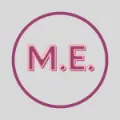 Have you seen the new HBO series, The Idol?
Have you seen the new HBO series, The Idol?
The show has caused a lot of controversy due to its explicit depiction of Jocelyn, a pop star played by Lily-Rose Depp, who is trapped by Tedros, a cult-leading nightclub owner played by The Weeknd.

In many media reviews, this may be HBO's worst drama:
- “The dialogue and choreography feel like they’re plucked from the brain of a horned-up teenager who just found out they could google ‘boobs’ on Google Images ” (British GQ,**The Idol just gave us the worst sex scene in history)
- "The first hour-long episode was kinky yet empty, like a visit to a red-light district during the pandemic.” (People,HBO's Controversial New Series Is a Mess)
- DailyMail has documented some negative reviews of this drama from netizens:
- @itsallrealitv added, '#TheIdolHBO What the damn hell is this and why the damn hell am I still watching it?'
- @CharlieTankTops added, 'Episode 5 of #TheIdolHBO should just be a full hour of Sam Levinson and @theweeknd apologizing to the actual talented people in this show for its existence.'
- @ITSKAYBAE_ added 'Sooo all that toxic masculinity he asserting on this cult and he weak in the knees for Jocelyn. Done let this man come in there and make you look like an a** lol'
Negative reviews may cause a rapid decline in the viewership of this drama. Despite the series premiere exceeding 3.6 million viewers, surpassing the first episodes of both The White Lotus and Euphoria at the same point in time, the second episode has lost over 100K viewers.
After watching all four episodes of this show, it became clear to me that it has the potential to replicate the success of the first season of Euphoria (which has an IMDb rating of 8.3 and an average Rotten Tomatoes rating of 88%). However, the show misses the mark in some crucial areas, making it seem like it has everything it needs but falling short in actual content. Now, I will analyze The Idol from different angles to pinpoint where the issue lies.
Does "less female perspective" really work?
The first warning came on March 1st of this year when Rolling Stone reported on some behind-the-scenes production issues. Director Amy Seimetz had left the show with 80% of the six-episode series completed, and Sam Levinson stepped in as director to reshoot the show, which was heavily rewritten. There was little explanation for the shakeup, except for reports that The Weeknd, who is a co-creator, felt that the show was leaning too much towards a "female perspective" and wanted the plot to give his character more attention than Lily-Rose's.‘
Possibly due to the pressure from reshoots, the production team did not have enough time to ensure plot coherence. As a result, the final edit is somewhat confusing. For example, in the second episode, Jocelyn and Tedros talked on the phone and agreed to shoot the MV in two days. Jocelyn then confirmed the details with the production company the next day and went to the shooting location on the third day to start filming. During the shoot, the creative director, Xando, stated that they had confirmed the details the previous week. There is some confusion in the timeline. While it appears that all scenes of Jocelyn preparing for the music video were shot on the second day, Xando's lines suggest otherwise. It is unclear why this inconsistency was included in the final product, and it is possible that it was an artistic choice.
However, the editing flaws are not the biggest consequences of changing the director and reshooting. In my opinion, the failure to incorporate a female perspective is the most serious issue that led to the failure of character development for the female lead.
I am not suggesting that a drama must exclusively feature the female perspective to be considered good. However, if a drama with a female lead fails to incorporate a female perspective, it may result in the characters appearing shallow and distorted. This is because the female perspective typically represents the viewpoint of the female protagonist in such dramas. Without it, she may only be depicted from a perspective that does not fully capture her experience as a woman.

For instance, one reason why the relationship between Jocelyn and Tedros in "The Idol" feels sudden is the lack of description of Jocelyn's individual feelings from her perspective. Superficially, her falling in love with the cult leader Tedros seems reasonable. Jocelyn, a female idol, was controlled by her mother from a young age and was exposed to the entertainment industry too early. She developed an infatuation with toxic men due to her spiritual helplessness, and this story is not new. We can easily associate this with Britney Spears's real experiences. However, the problem is that people can empathize and understand Britney because we have enough material to stand in Britney's perspective and imagine how much pressure she faced.
But in "The Idol," except for one or two fans chasing Jocelyn's shots, there is almost no description of all her pain: her experiences with her mother, the hardships she went through to become a star, her pain when she lost her mother, and her vulnerability when she had a mental breakdown. All of this is skipped, only explained by the lines of supporting characters, and even in the crisis where her photos were leaked to the website, there was no display of the feelings of cyberbullying and her pain. After just one or two nervous shots, she was taken to the club to relieve stress by drinking and partying, and then fell into Tedros' trap.We cannot feel how much pain she is in, and it is difficult to understand why she easily brought Tedros into her life and handed over her life to Tedros.

Following this line of thinking, I also noticed that one of the few well-shot storylines in the first four episodes is Jocelyn's music video shooting. She rehearses repeatedly, injures her toes, and finally breaks down on stage. During this moment, she suddenly starts shouting "Mom" on stage, and as an audience member, I can empathize with her.

Unconvincing Acting
One of the most amusing aspects of this drama is its attempt to rationalize a relationship that initially seemed very strange. The director suggests that Jocelyn is accepting Tedros' controlling behavior due to her vulnerability caused by mental illness, as well as Tedros' strong personal charm, such as his views on music, his understanding of Jocelyn, and his philosophical perspectives, all of which make Jocelyn think he is different and trustworthy. However, regardless of whether it's The Weeknd's acting or his terrible lines, his supposed charm is incomprehensible to me. I also cannot understand why Jocelyn would suddenly risk having her career ruined by letting him control her life.
Ironically, this plot seems to confirm the comment made by the producer Nikki in the first episode about why mental illness is seen as sexy: a girl like Joselyn would never sleep with an ordinary man unless she had a very, very serious mental illness. It can be inferred that the screenwriters and directors themselves understand the concept of "romanticizing and sexualizing mental illness", but they are still using it to attract viewers. This is why The Idol did not delve into Jocelyn's struggle with her mental health issues, but instead emphasized her irrational sexual behavior while in a vulnerable state.

Moreover, the character of Nikki lacks credibility. She is introduced as a powerful producer who urges Jocelyn to release new songs to compensate for past losses. During the first crisis, which was the leak of Jocelyn's explicit photos, she boldly discusses her sexual experiences and considers the photos normal, supports Jocelyn's nudity, and romanticizes mental illness.
I understand that the director aimed to portray the decline of the entertainment industry, the exploitation of people, and the pursuit of interests by any means through the character of Nikki. However, a comment from a music industry reporter in another article suggested that such opinions do exist, but are typically expressed by men. Therefore, it might be more appropriate to have a male character express such views.
Too much meaningless plots and sex scenes
The series includes scenes that graphically depict revenge porn, self-harm, drug use, masturbation, choking, and a sexual encounter involving a knife. The director attempts to add artistic value to the scene by using alternating lighting and Jocelyn's breathing. However, some viewers have criticized the show as "torture porn" and a "rape fantasy." The sex scene does not give a clear reason for Jocelyn's attraction to Tedros and seems like a male fantasy created by men who try to tell complex stories but only focus on nudity.
In one episode, Jocelyn masturbates and self-harms while grieving her mother. In another episode, she has sex with Tedros while recording a song, with everyone present. These sexually explicit scenes have become a form of female performance, but they do not effectively develop the female characters or allow the audience to relate to them. Female characters in these sexual situations are portrayed as hollow and foolish, lacking logical behavior, and existing solely for male desire, much like in adult pornography films.

By the time I wrote this review, HBO had already cut this series down to 5 episodes (originally planned for 10 before the reshoots, and 6 after). As the lowest-rated series produced by HBO, The Idol can actually provide us with some valuable lessons. The show contains many elements that seem to be able to attract young audiences, such as sex scenes, pop idols, cult leaders, luxurious celebrity lifestyles, and chaotic parties. This is also why it initially gained attention when it was released, satisfying young audiences' curiosity about the entertainment industry.
However, there are some problems with character development, plot setting, editing, and visual effects that make it difficult for viewers to believe that the characters' emotions are real and the story is true. As a result, the intentionally mysterious filming techniques (such as using flickering lights to create an atmosphere during sex scenes) become scenes that are easily ridiculed. I guess this is also why The Weeknd was mocked by many netizens after the series aired.
As reported by People, The Weeknd believes that The Idol provides viewers with a window into the life of a famous person:
"It’s almost educational, that this is what comes with being incredibly famous," he said. "You’re surrounded by people who you’re not sure what their true intentions are, even if it seems like they’re good. You just never know."
It seems that the creator of this series intended to explore the darker aspects of their life through Jocelyn, Tedros, and other characters. Jocelyn was designed to be both charming and sympathetic while Tedros was intended to be a captivating, evil, and charismatic character. However, due to issues with the plot and the actor's performance, the character was not portrayed effectively and instead came across as arrogant rather than charming to the audience. This caused me to feel regretful about this TV series.

In my perspective, "The Idol" was originally a dark satire of the fame chase in the entertainment industry. However, it has now turned from satire into what it was satirizing. Similarly, last year's film "Blonde" was criticized for reconsuming Marilyn as a sexy symbol from a male gaze perspective. It has become a sexual performance from a male gaze perspective, completely shifting from a reflection on the exploitation and objectification of female singers in the industry.
So, the good news is that this drama is almost over--only one episode left. I'm thinking I'll stick it out and watch till the end. I mean, how much worse could it really get, right?
























































Share your thoughts!
Be the first to start the conversation.